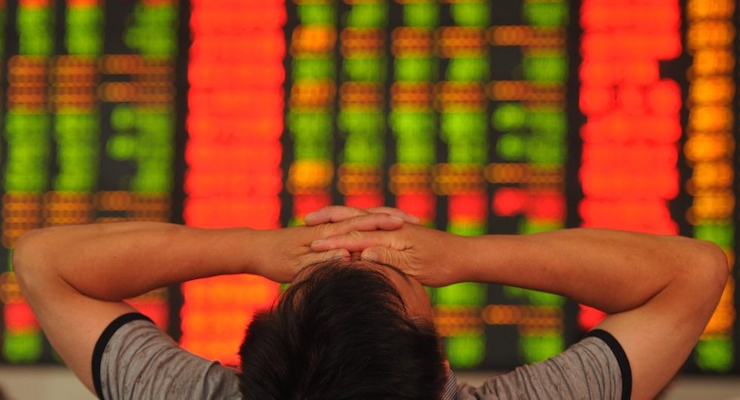

A stock investor reacts as he checks prices in a brokerage house in Fuyang in central China’s Anhui province, 08 July 2015. Chinese stocks plunged on 08 July, with the benchmark Shanghai Composite Index closing down 5.9 percent despite new measures to shore up share prices. The Shanghai Composite Index has tumbled by around 30 per cent since a peak on 12 June. (PHOTO: EPA/AN MING CHINA OUT)
I’m a huge fan of the Fraser Institute’s Economic Freedom of the World. I always share the annual rankings when they’re released and I routinely cite EFW measures when writing about individual countries. But even a wonky economist like me realizes that there is more to life than economic liberty. So I was very excited to see that Ian Vásquez of the Cato Institute and Tanja Porčnik of the Visio Institute have put together The Human Freedom Index.
Here’s their description of the Index and some of the key findings.
The Human Freedom Index… presents a broad measure of human freedom, understood as the absence of coercive constraint. It uses 76 distinct indicators of personal and economic freedom… The HFI covers 152 countries for 2012, the most recent year for which sufficient data is available. …The United States is ranked in 20th place. Other countries rank as follows: Germany (12), Chile (18), Japan (28), France (33), Singapore (43), South Africa (70), India (75), Brazil (82), Russia (111), China (132), Nigeria (139), Saudi Arabia (141), Venezuela (144), Zimbabwe (149), and Iran (152).
Hong Kong and Switzerland are the top jurisdictions. Here’s the Freedom Index‘s top 20, including scores on both personal freedom and economic freedom.
The United States barely cracks the top 20. We rank #12 for economic freedom but only #31 for personal freedom. It’s worth noting that overall freedom is strongly correlated with prosperity.
Countries in the top quartile of freedom enjoy a significantly higher per capita income ($30,006) than those in other quartiles; the per capita income in the least-free quartile is $2,615. The HFI finds a strong correlation between human freedom and democracy. Hong Kong is an outlier in this regard. The findings in the HFI suggest that freedom plays an important role in human well-being
And here are some notes on methodology. The authors give equal weighting to both personal freedom and economic freedom.
One of the biggest challenges in constructing any index is the organization and weighting of the variables. Our guiding principle is that the structure should be simple and transparent. …The economic freedom index receives half the weight in the overall index, while safety and security and other personal freedoms that make up our personal freedom index receive the remaining weight.
Speaking of which, here are the top-20 nations based on personal freedom. You can also see how they scored for economic freedom and overall freedom.
To be succinct, Northern European nations dominate these rankings, with some Anglosphere jurisdictions also getting good scores. It shouldn’t be a surprise to learn that nations with economic freedom also tend to have personal freedom, but there are interesting exceptions.
Consider Singapore, with ranks second for economic freedom. That makes the country economically dynamic, but Singapore only ranks #75 for personal freedom. Another anomaly is Slovenia, which is in the top 20 for personal freedom, but has a dismal ranking of #105 for economic freedom.
By the way, the only two nations in the top 10 for both economic freedom and personal freedom are Switzerland and Finland.
I’ve already explained why Switzerland is one of the world’s best (and most rational) nations. Given Finland’s high ranking, I may have to augment the nice things I write about that country, even though I’m sure it’s too cold for my reptilian temperature preferences.








